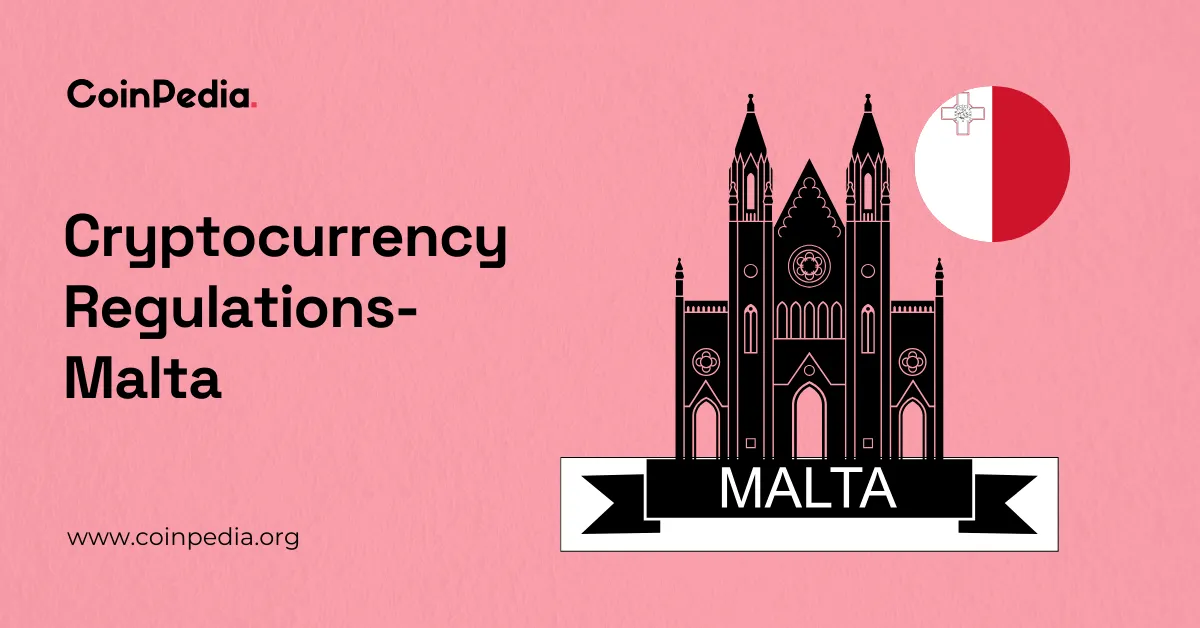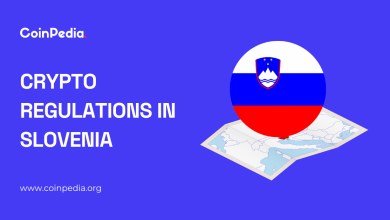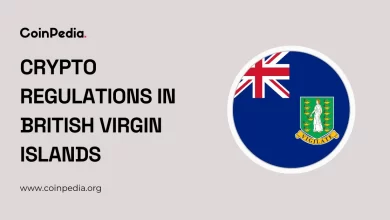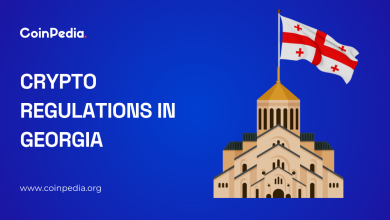
Malta has been a leading name in the crypto sphere! It has won the name of “blockchain island” for a reason. It was the first country to back the crypto industry by adding a legislative tail to the crypto fore. It created a regulatory system in which both the currency and the industry could co-exist and operate.
Malta is considered a favorable nation for entrepreneurs or fintech firms who wish to utilise blockchain technology. Due to its progressive nature, an unbiased taxation system on crypto has made it one of the most crypto-friendly countries in the world. This attracted digital asset companies worldwide. Many large crypto exchanges, such as OKEx and Crypto.com, have already established their headquarters in Malta.
Malta came up with three bills to supervise and tax cryptocurrency exchanges in its premises. The tax laws here showcase the high-level principles of the European Union when it comes to market integrity and industry protection!
In this module by Coinpedia, we will cover the main highlights of the crypto regulatory scenario in Malta.
Malta’s Crypto Policy
The Malta cryptocurrency regulation acts established in 2018, namely, the MDIA act, ITAS Act and VFA Act are a form of governance to eliminate obscurity in this new ungoverned market space that crypto is!
So what is DLT Asset Classification?
All cryptocurrencies used globally are subject to asset classification under the Income tax act (ITA) to be identified. There are four categories under which a Distributed Ledger Technology falls:
- Coins
- Financial tokens
- Utility tokens
- Hybrid tokens
The Maltese tax laws consider the nature of the transaction of a virtual asset, the status of the parties involved and the circumstances of each transaction. Once identified, the DLT transactions might be taxed under regular income tax or other taxation rules. For taxation purposes, DLT assets are classified into the above-mentioned categories.
TimeLine of Crypto Regulations in Malta
Sept 18 2023: Malta updated its cryptocurrency regulations to match the upcoming EU Markets in Crypto-Assets (MiCA) rules, set to start in December 2024. Key changes include eliminating the systems audit requirement, reducing capital requirements for Class 3 and 4 licenses, and adapting outsourcing requirements to MiCA.
These changes aim to harmonize Malta’s existing framework with MiCA, rather than waiting 18 months for MiCA to take effect.
Jul 07 2023: Okcoin, a crypto exchange, received “In Principle” approval from the Malta Financial Services Authority to expand its services in Malta, aiming to simplify euro-based crypto purchases by partnering with local banks and payment providers. OkCoin had been serving Dutch residents with crypto trading since 2018 and registered as a crypto service provider with the country’s central bank in May 2020.
May 12 2021: Crypto.com Becomes the first cryptocurrency platform to secure Malta’s Class 3 Virtual Financial Assets License, issued by the Malta Financial Services Authority (MFSA). This license, which involves stricter governance and security standards, enhances the recognition of digital assets within the European Union. Prior to obtaining this license, Crypto.com operated under a temporary legal framework in Malta.
Feb 21 2021 :The MFSA issued a public statement, asserting that Binance had not been authorized by the MFSA to operate in the cryptocurrency sphere. This announcement was made by the MFSA after local publications inaccurately labeled Binance as a “Malta-based cryptocurrency firm,” and it was clarified that Binance did not fall under regulatory oversight in Malta.
June 04 2019: Crypto trading platform OKCoin opened an office in Malta at the chiliZ Blockchain Campus by following the rules of Malta’s Financial Services Authority. This exchange offered euro spot trading for digital assets like BTC, ETH, and BCH to non-US customers.
Feb 28 2019: The International Monetary Fund (IMF) identified critical anti-money laundering (AML) and counter-terrorism financing (CFT) supervision gaps in Malta’s financial regulatory system. The IMF report urged urgent action to address these deficiencies, particularly in beneficiary owner screening, non-resident client monitoring, and oversight of blockchain technology and cryptocurrency service providers.
Despite Malta’s blockchain-friendly reputation, the IMF had noted concerns about AML compliance and had called for increased resources and operational capacity for the Malta Financial Services Authority (MFSA).
Nov 01 2018: The Virtual Financial Assets Act (Chapter 590 of the Laws of Malta) came into effect on November 1st. This Act regulates the registration of whitepapers by Virtual Financial Assets (VFAs) Issuers, VFA Service Providers, and VFA Agents. Its goals include safeguarding investors, ensuring market integrity, and promoting financial stability while fostering innovation and addressing money laundering and terrorism financing risks.
Oct 01 2018: Malta’s Prime Minister, Joseph Muscat, during the speech on blockchain and crypto potentials, called them an inevitable part of a digital future. Also said about setting up Malta as “Blockchain Island”
Jul 04 2018: Malta becomes the first country to regulate cryptocurrency. Malta signs three bills into law, they can be changed on the way people see and use crypto in the country. The three bills signed are Virtual Financial Assets Act, Multi Digital Innovation Authority, Innovative Technology Arrangement, and Services Act.
Basics of taxation on Crypto in Malta:
In Malta, cryptocurrency is taxed under a government-directed regulatory framework. The taxation is done on the basis of MDIA, ITAS and VFA acts. The Maltese regulatory system differentiates between trading, mining and investing cryptocurrencies.
- Trading
Those who are involved in trading on frequent and short-term transactions to profit from price fluctuations are termed as traders. Taxation on them depends on the scale and frequency of trading.
- Investing
Investors hold their assets for extended periods and may have different taxation rules in comparison to the traders.
- Mining
In Malta, mining is a legitimate activity and is subject to taxation and other regulatory requirements, depending on the scale and nature of mining operations.
Each activity is subject to different rules and regulations under the VFA Act!
Taxation on crypto gains in Malta:
- Capital gains or assets like cryptocurrency are generally subject to capital gains tax in Malta.
- Gains made from trading activities may be treated as business income and might be taxed.
- Capital gains tax rates on crypto range from 15% to 35% depending on the taxpayer’s residential status.
Taxation on mining activities in Malta:
- The taxation on mining in Malta is done at a progressive rate.
- If the activity is done on a part-time basis beneficial tax rates might apply. These advantageous tax benefits apply to individuals engaged in part-time employment and part-time self-employment in Malta who may benefit from a fixed tax rate of 10% on the first €10,000 and €12,000 of income or profits, respectively.
Crypto tax incentives In Malta
- The crypto-friendly nation offers tax incentives to promote the industry.
- The country created a crypto-friendly regulatory ecosystem by allowing three bills in 2018 to supervise and tax cryptocurrency exchanges, focusing on consumer protection, market integrity, and industry protection.
- From an income tax perspective, holding cryptocurrencies and receiving payments in virtual currencies for goods or services rendered are taxable events.
- The tax treatment is similar to traditional currencies, with capital gains taxes applicable when cryptocurrencies are sold or used.
- Payment for supplies by way of cryptocurrencies is exempt from VAT in the European Union.
Maltese Crypto Acts
Malta Digital Innovation Authority (MDIA) Act
The act aims to foster innovation and integrity in the crypto space! It provides a legal framework for the crypto users. It came into power on July 15, 2018.
Objectives:
- Promoting public policies to technological innovation
- Promoting the usage of innovative technologies
- Protecting Malta’s reputation as a progressive nation
- Promoting transparency and control in the use of innovative technologies
Innovative Technology Arrangements And Services (ITAS) Act
Passed on November 1, 2018, the act focuses on standardizing the regulation of new and evolving technologies. It is applied by MDIA.
ITAS Law defines innovative technological solutions as software, which are used in the design and delivery of DLT, which is usually, but not necessarily:
- Use of distributed, decentralized, general and/or replicated ledger
- May be public, private or mixed,
- Permitted, not allowed or hybrid
- Provides a high level of protection against retrospective interference, so that the transaction history can not be replaced
- Encrypted
- Is being tested
The ITAS Act defines innovative technological services as follows:
- Review or audit services referred to in this Law, with reference to innovative technological mechanisms provided by system auditors
- Technical administrative services referred to in this Law, with reference to innovative technological mechanisms provided by technical administrators
Virtual Financial Assets (VFA) Act
This act, enacted in 2018, established a regulatory framework for virtual financial assets, including crypto tokens. It lays the requirement rules for businesses in Initial coin offerings (ICO) and crypto exchanges.
Final Thoughts
When the Markets in Crypto Assets regulation came into the picture, the Maltese government took proactive steps to adjust its crypto regulations. MFSA was seen opening doors to public consultation in 2023, thus aiming to make the Maltese framework congruent with MiCA’s provisions. MFSA wishes to refine regulations that govern exchanges, custodians, and portfolio managers in the crypto domain. This move from Malta is proof that it is open to aligning itself with the new, innovative reforms when it comes to cryptocurrencies.







